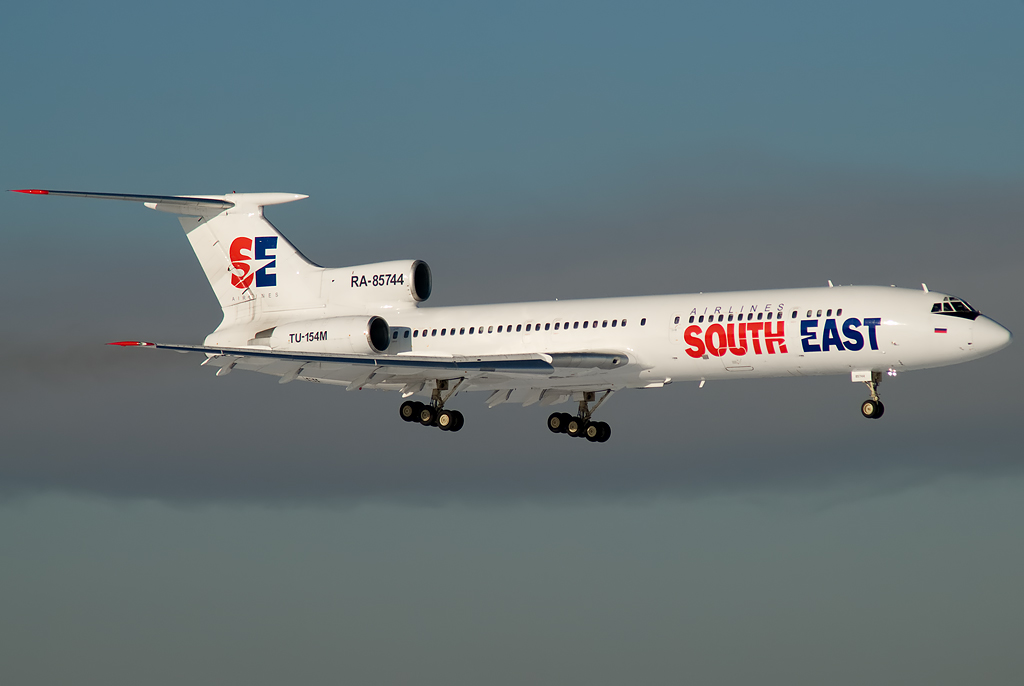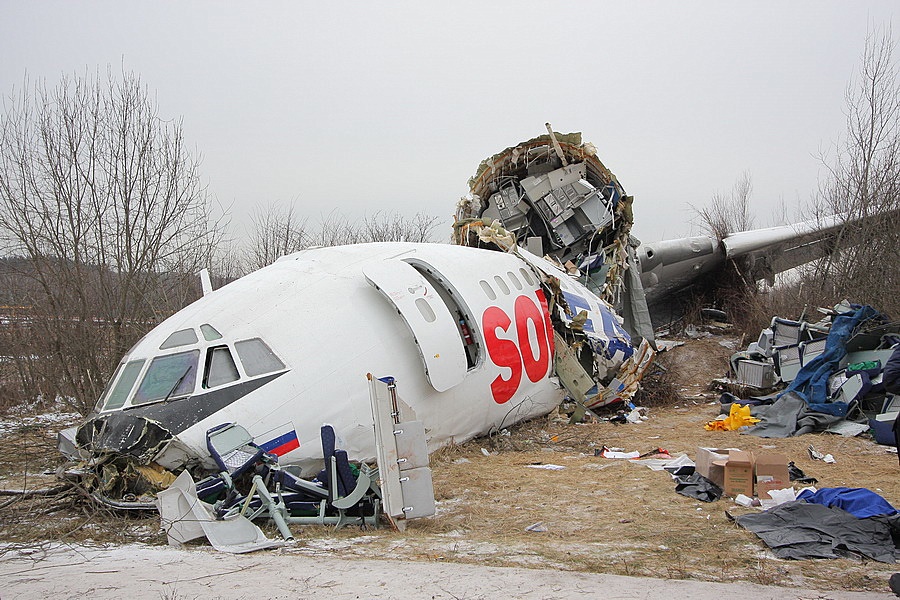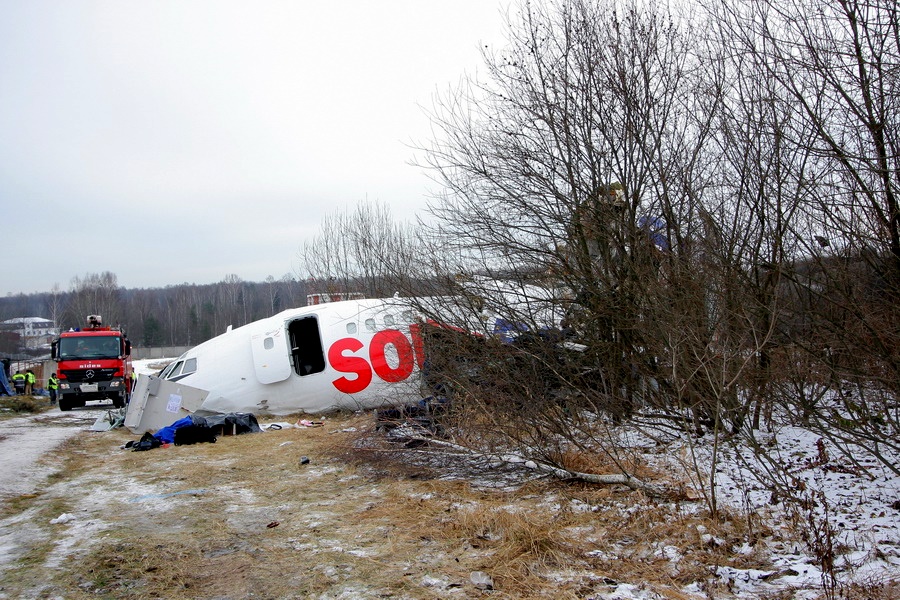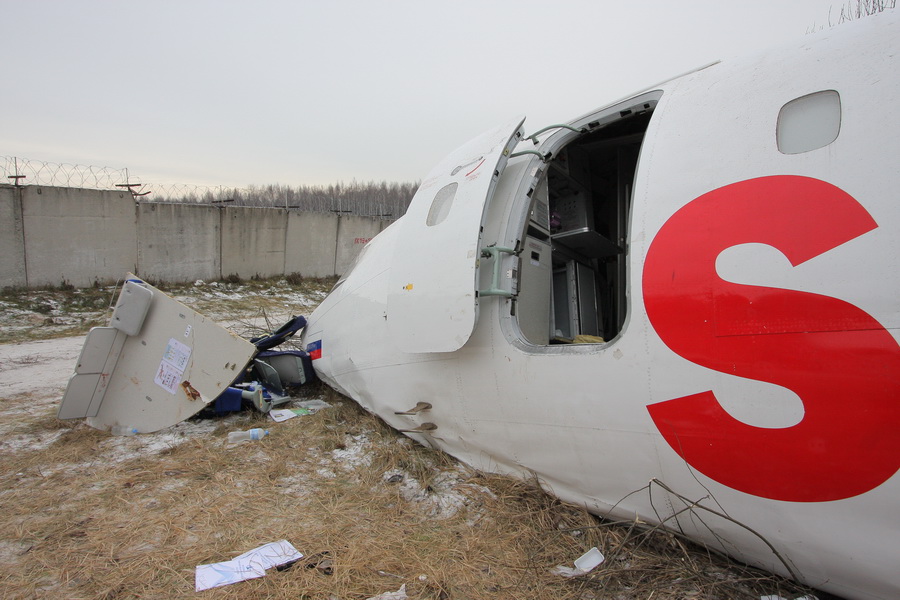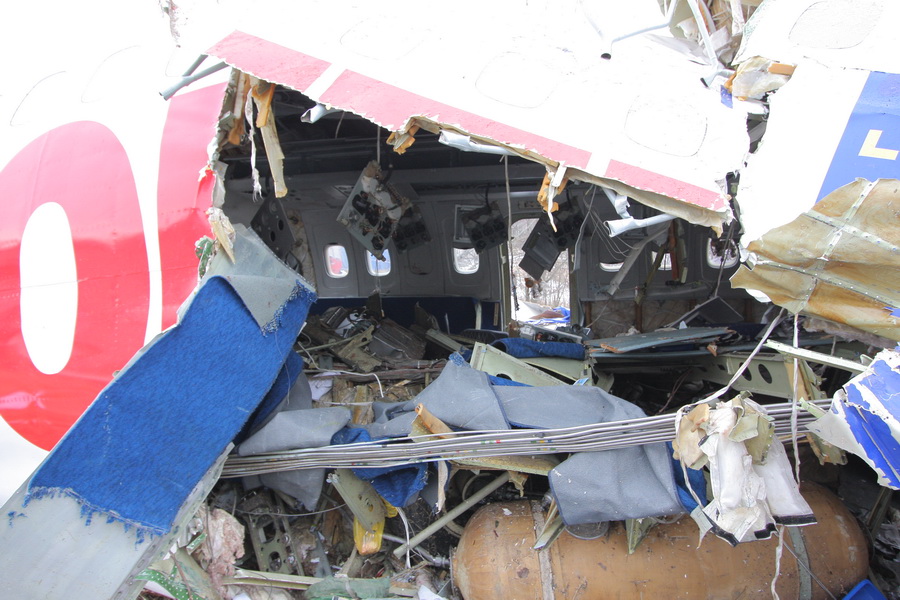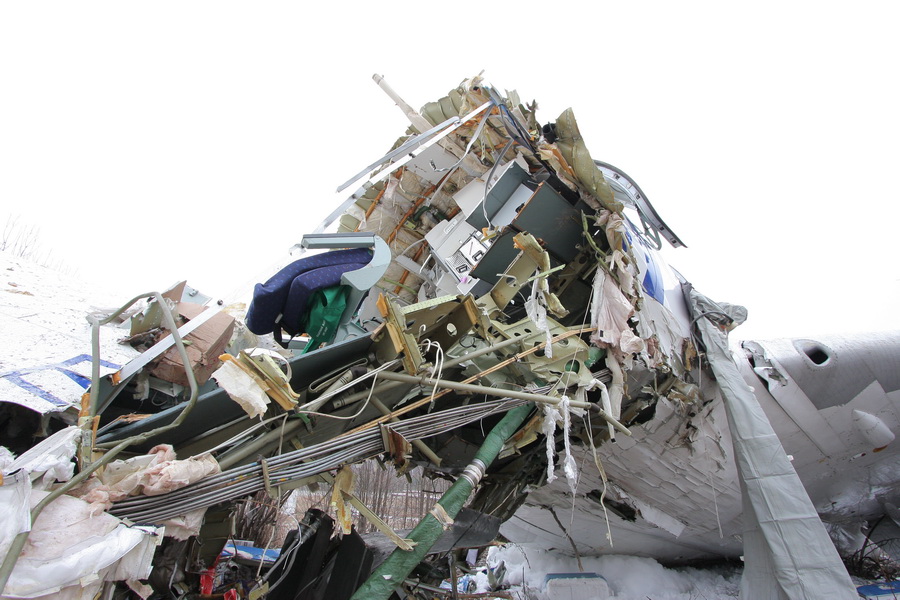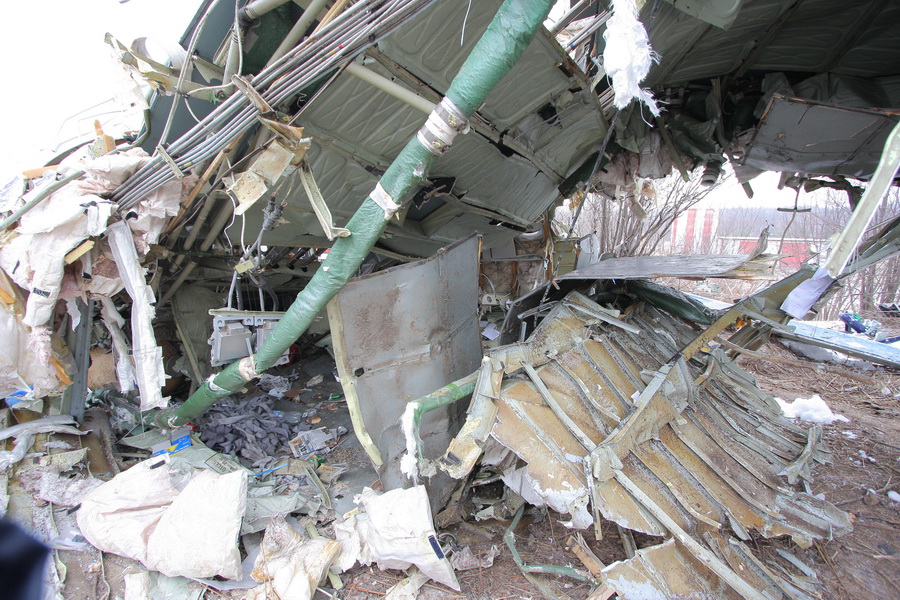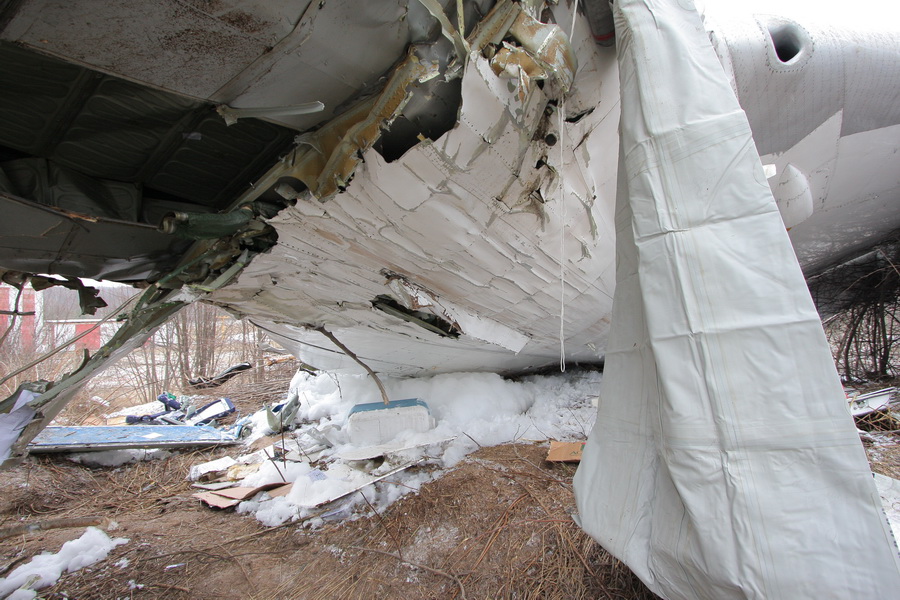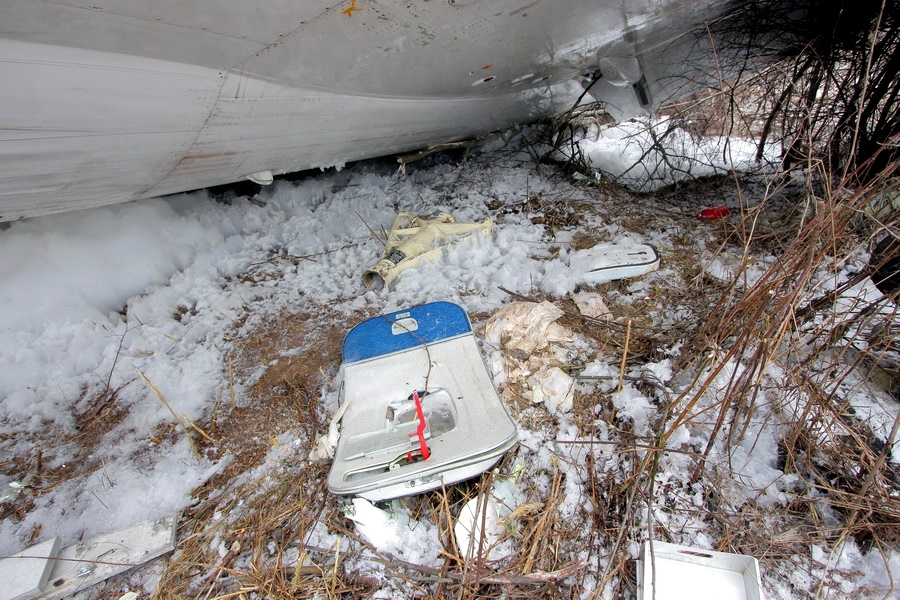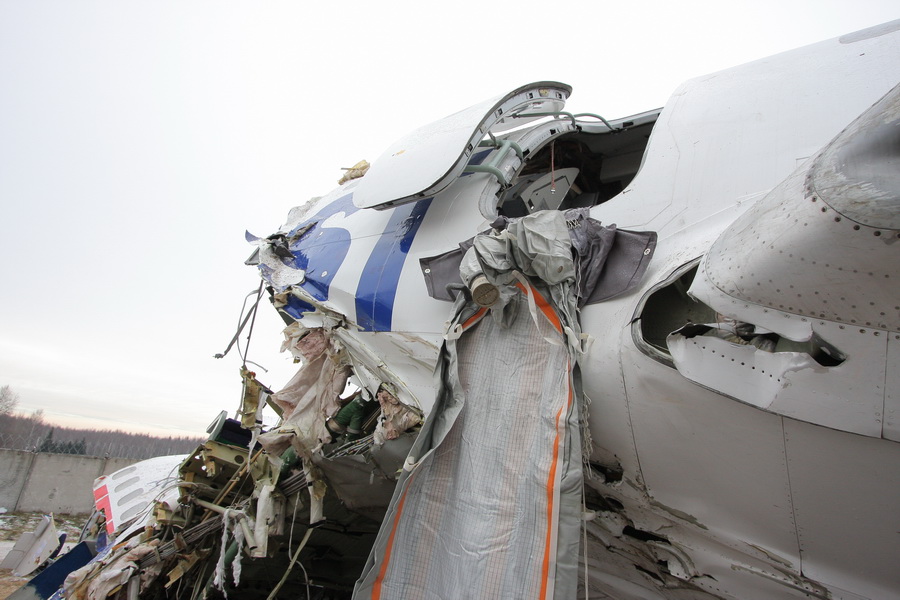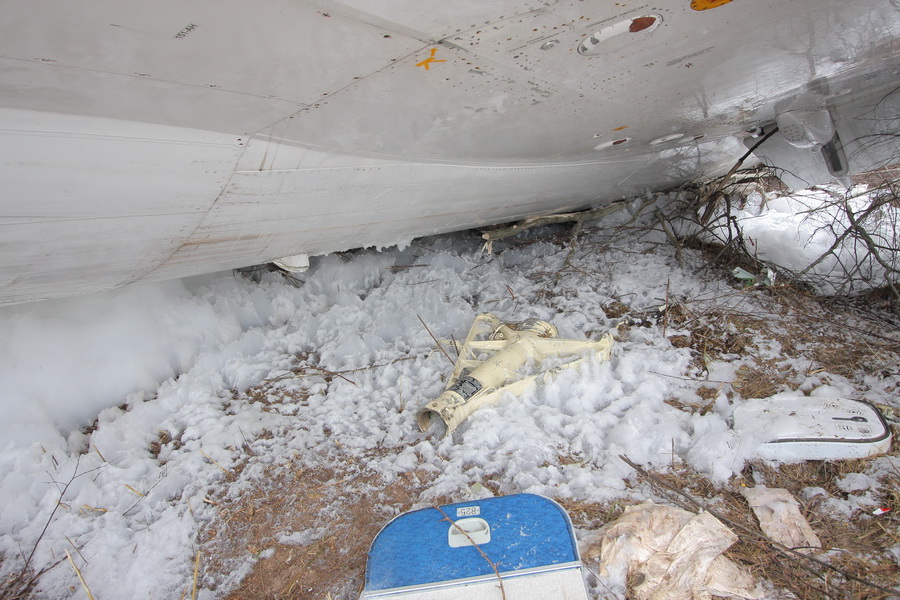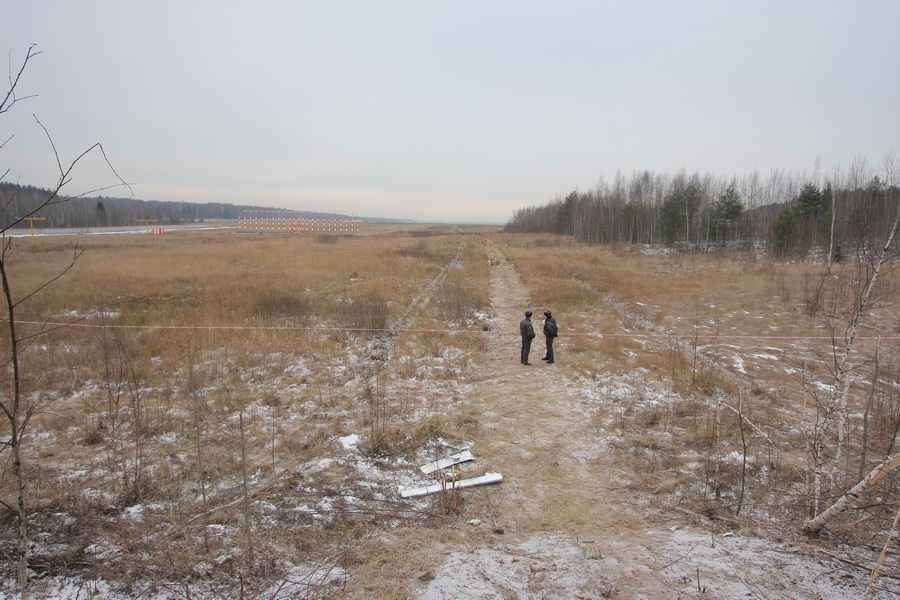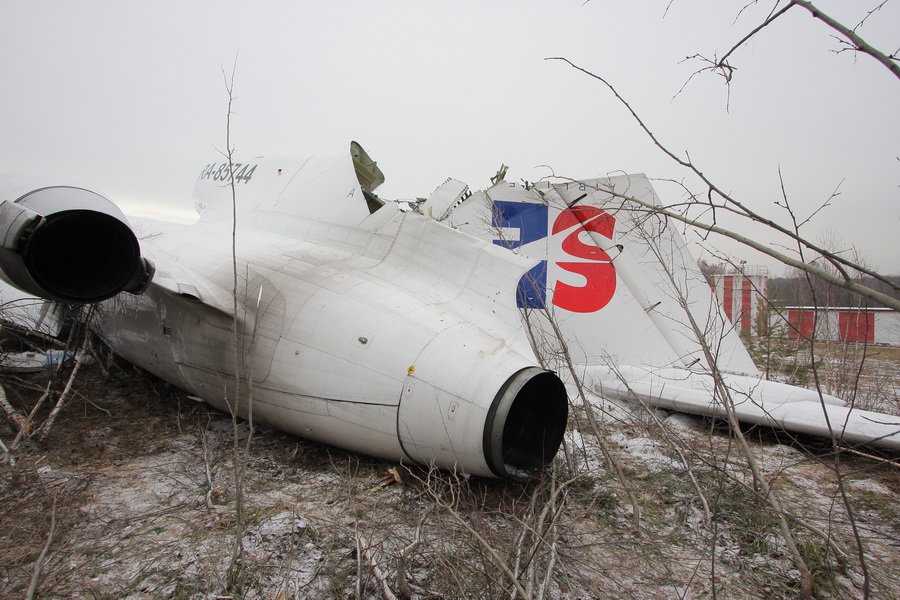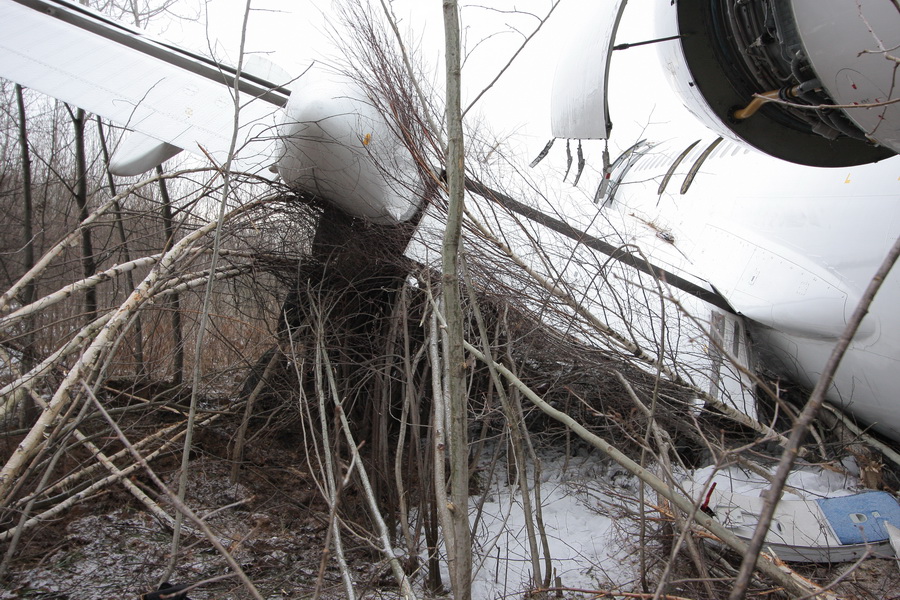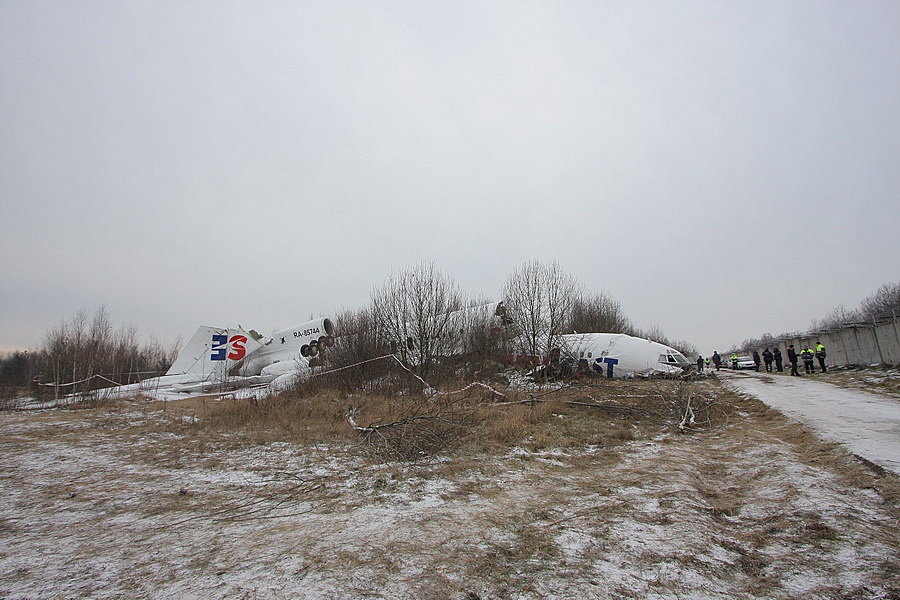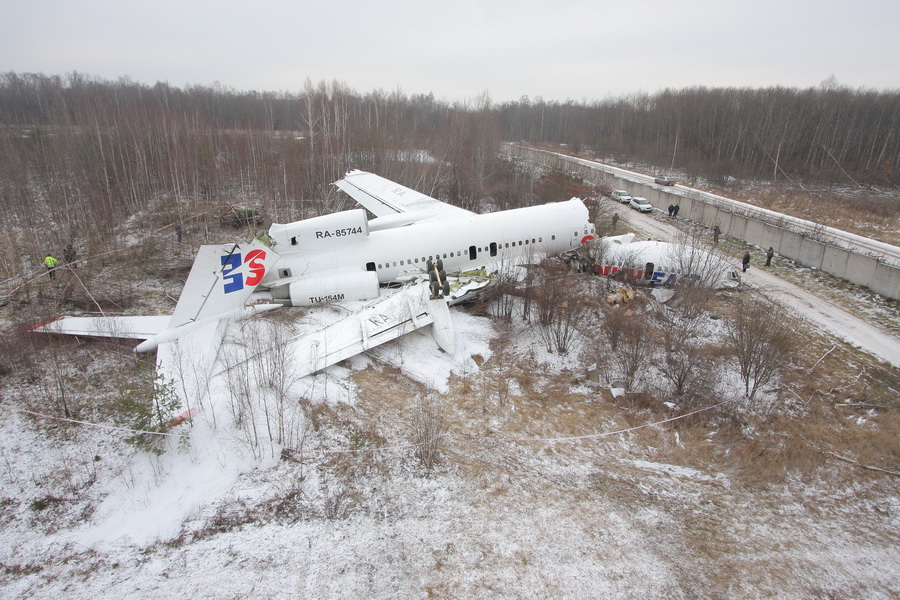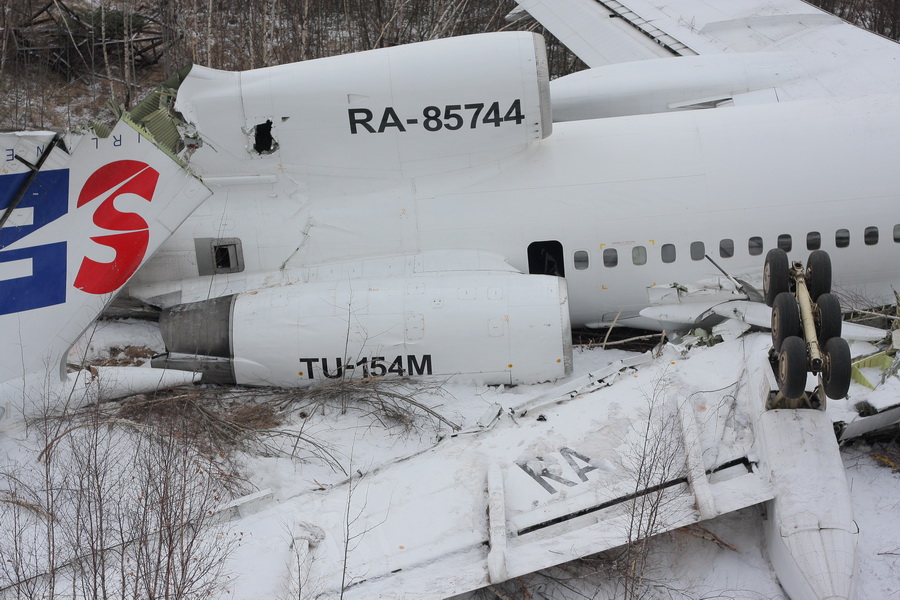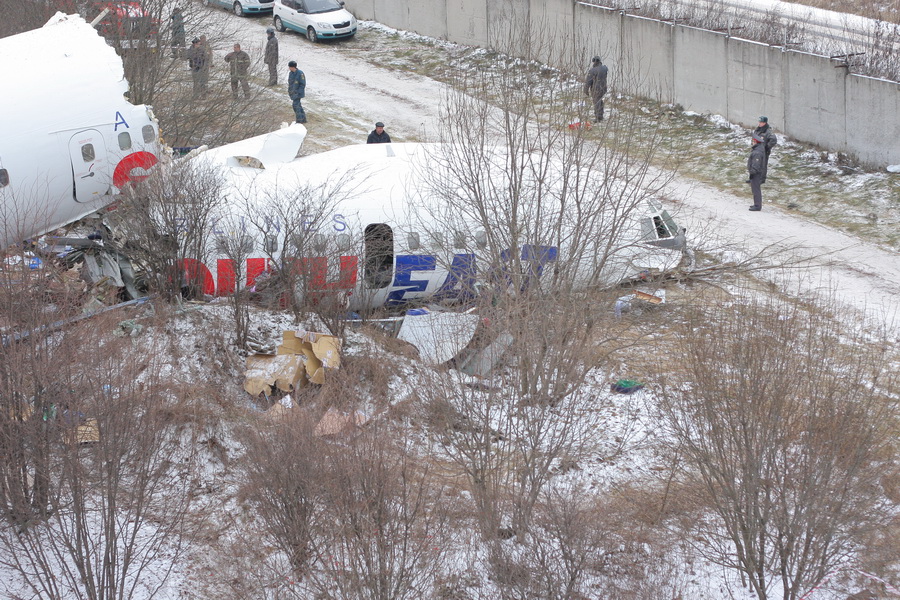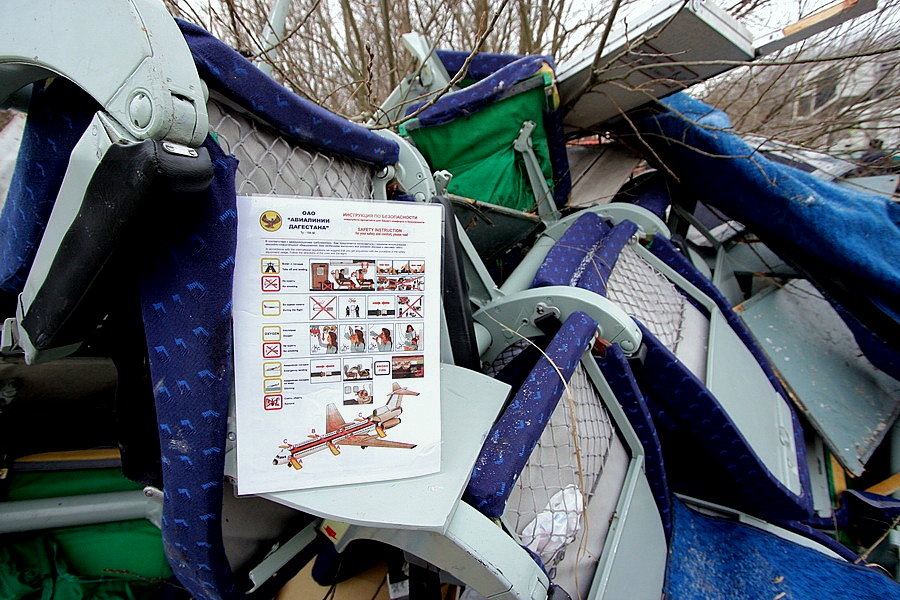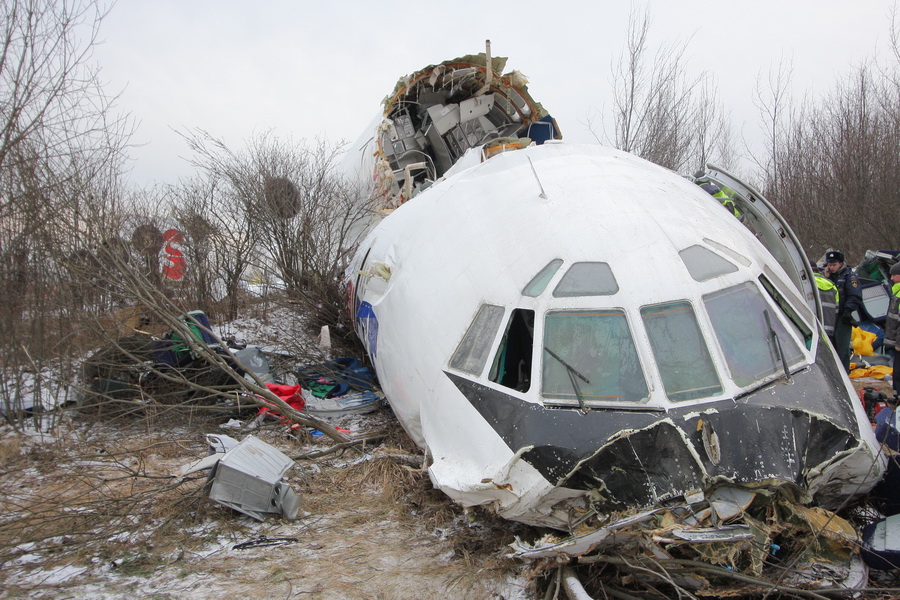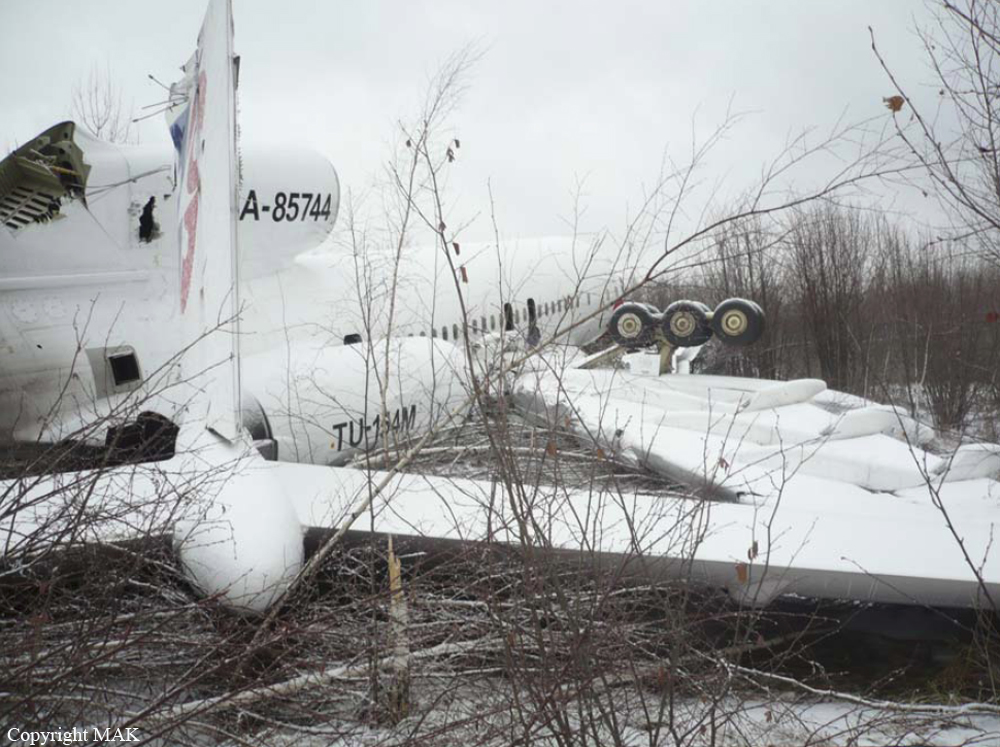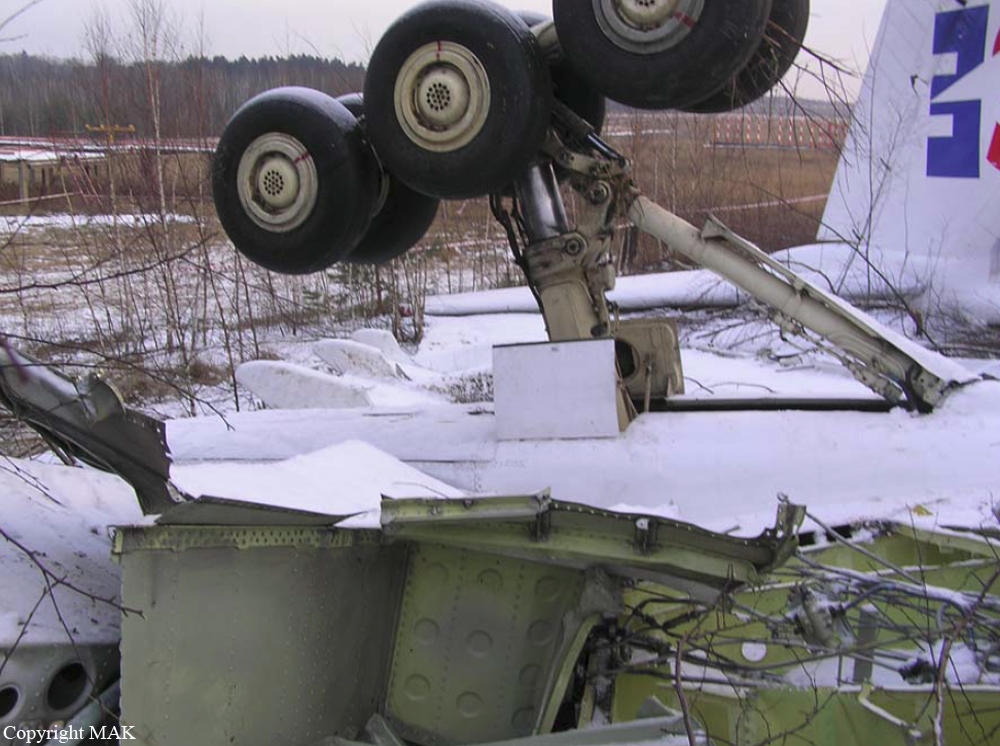Country
Ground fire of a Tupolev TU-154B-2 in Surgut: 3 killed
Date & Time:
Jan 1, 2011 at 1525 LT
Registration:
RA-85588
Survivors:
Yes
Schedule:
Surgut - Moscow
MSN:
83A588
YOM:
1983
Flight number:
KGL348
Crew on board:
8
Crew fatalities:
Pax on board:
126
Pax fatalities:
Other fatalities:
Total fatalities:
3
Captain / Total hours on type:
2780.00
Copilot / Total hours on type:
3279
Aircraft flight hours:
32354
Aircraft flight cycles:
13147
Circumstances:
Ready for taxi, the crew started the engines when a short circuit occurred and a fire erupted in the rear compartment. The evacuation of all 134 occupants was initiated but three passengers died while 32 others were seriously injured. The aircraft was totally destroyed by fire. The OAT was -29° C at the time of the incident.
Probable cause:
A short circuit emerged while the aircraft generators were connected to the aircraft's electrical system after start-up of the engines, via an APU. The short circuit caused a strong fire in the generators compartment in the tail which spread rapidly through the fuselage. The cause of the fire was an electrical arc produced by electrical currents exceeding ten to 20 times the nominal loads when two generators not synchronized with each other were brought online but got connected together instead of being connected to parallel busses. The following contributing factors were identified:
- Poor technical conditions of contacts TKS233DOD responsible for connecting the generators with the electrical busses, that were damaged by prolonged operation without maintenance. A contact normally open was welded and fractured insulation material moved between contacts that are normally closed. These abnormal contact positions led to the connection between #2 and #3 generators.
- Differences in the schematic diagrams of generator 2 and generators 1 and 3. When the switch is moved from "check" to "enable" with no delay in the "neutral" position generator 2 is brought online without time delay which leads to increased wear of normally closed contacts in the TKS233DOD unit.
- The specific design of the electrical systems to ensure power supply to each bus from either the APU or either engine integrated drive generator.
- Poor technical conditions of contacts TKS233DOD responsible for connecting the generators with the electrical busses, that were damaged by prolonged operation without maintenance. A contact normally open was welded and fractured insulation material moved between contacts that are normally closed. These abnormal contact positions led to the connection between #2 and #3 generators.
- Differences in the schematic diagrams of generator 2 and generators 1 and 3. When the switch is moved from "check" to "enable" with no delay in the "neutral" position generator 2 is brought online without time delay which leads to increased wear of normally closed contacts in the TKS233DOD unit.
- The specific design of the electrical systems to ensure power supply to each bus from either the APU or either engine integrated drive generator.
Final Report:
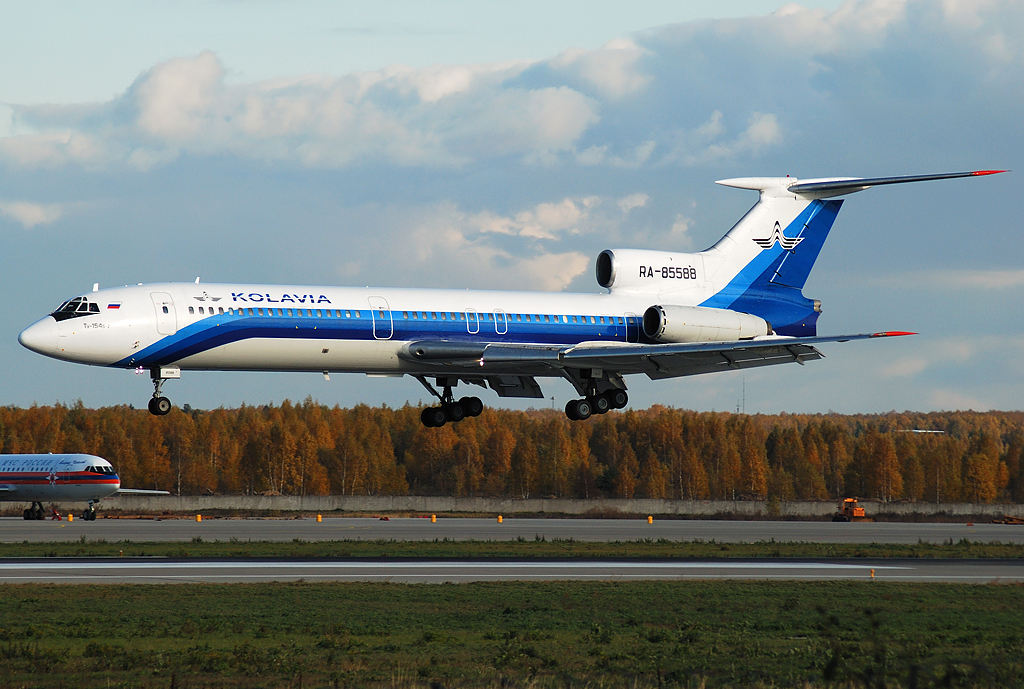
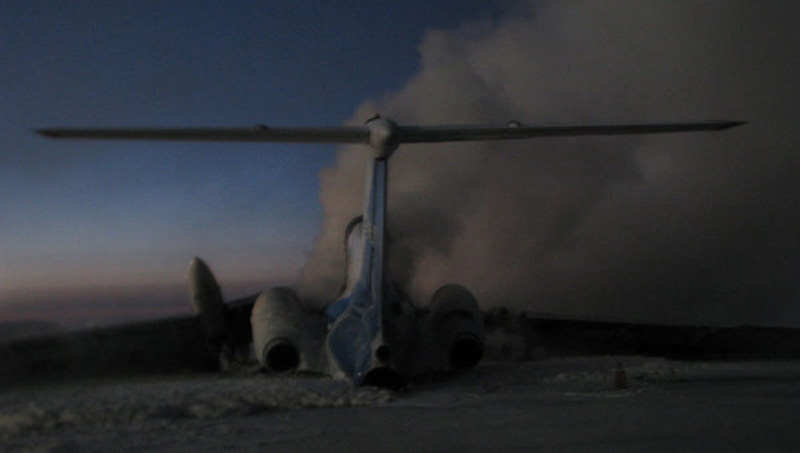

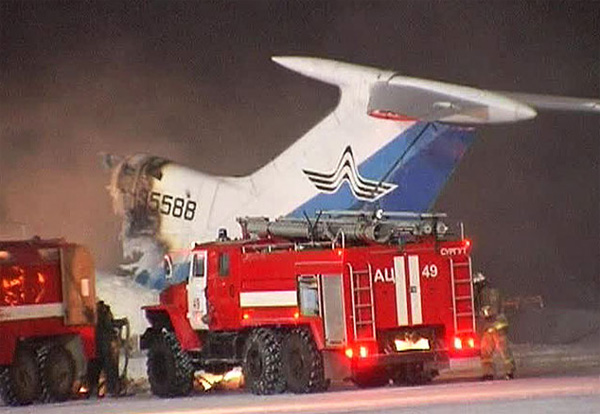
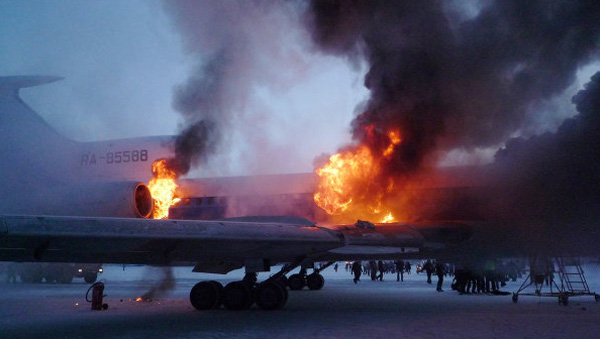

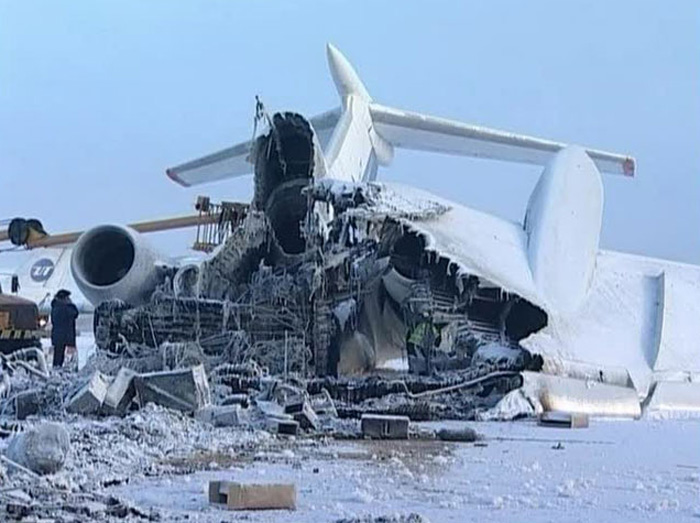
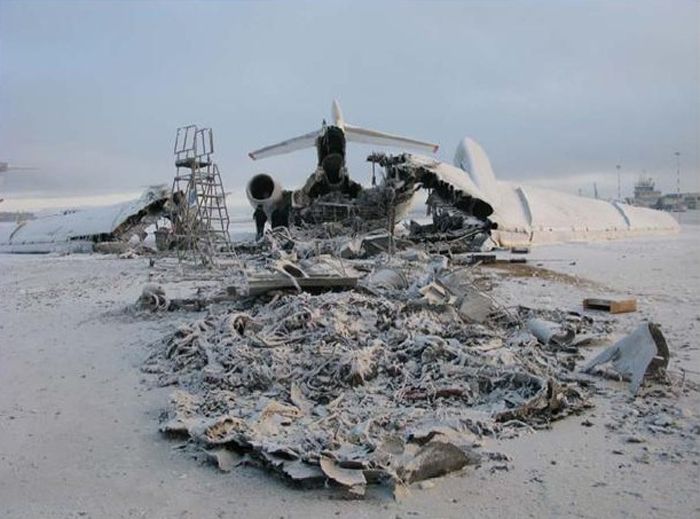
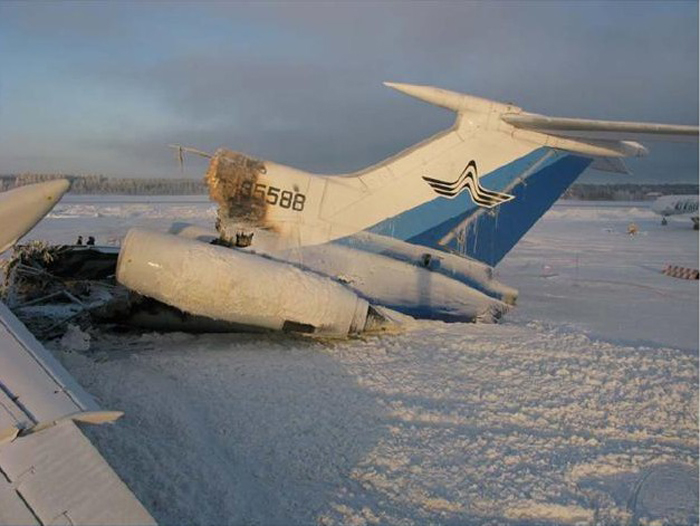
Crash of a Tupolev TU-154M in Moscow: 2 killed
Date & Time:
Dec 4, 2010 at 1436 LT
Registration:
RA-85744
Survivors:
Yes
Schedule:
Moscow - Makhatchkala
MSN:
92A-927
YOM:
1992
Flight number:
DAG372
Crew on board:
9
Crew fatalities:
Pax on board:
160
Pax fatalities:
Other fatalities:
Total fatalities:
2
Captain / Total hours on type:
10000.00
Copilot / Total hours on type:
1150
Aircraft flight hours:
9285
Aircraft flight cycles:
2983
Circumstances:
Daghestan Airlines (Avialinii Dagestana) flight DAG372 departed Moscow-Vnukovo Airport at 1408LT bound for Makhatchkala, Daghestan. Fourteen minutes after takeoff, while cruising at an altitude of 9,000 metres some 80 kilometers south of Moscow, the crew informed ATC about the failure of the engines n°1 and 3 and was cleared to return to Moscow-Domodedovo Airport. On final, the aircraft descended below the clouds at a height of 500 feet but was not properly aligned with the runway centerline. It landed hard to the right of runway 32R, went out of control, impacted an earth mound and bushed before coming to rest, broken in two. Two passengers were killed while 78 other occupants were injured.
Probable cause:
Erroneous actions on part of the crew who, while landing in instrument meteorological conditions with one engine running, permitted the aircraft to touch down significantly to the right of the runway.
These actions were the result of following factors:
- The flight engineer inadvertently turned off the fuel booster pumps of the service tank while working the procedures for manual fuel transfer during the climb, which led to fuel starvation, all engines spooling down with the outer engines (#1 and #3) shutting down as well as loss of electrical power for 2:23 minutes due to loss of all three generators
- Failure by the crew to take use of all available possibilities to restore on-board systems after generator #2 was recovered and the APU spooled up and was successfully connected
- Failure to comply with recommendations "flying with two engines inoperative" and "approach and landing with two engines inoperative"
- Lack of leadership and lack of management and distribution of responsibilities by the captain leading to independent but not always accurate actions by the other crew members as result of insufficient training in crew resource management
- A complex wind environment varying with heights which contributed to the deviation from the proper approach trajectory while the crew was flying on stand by instruments rather than regular instruments
- Insufficient training of the crew as a whole as well as each individual to act in emergency and complex scenarios
- The non-implementation of safety recommendations developed in earlier investigations to prevent the flight engineer inadvertently turn off the fuel booster pumps.
These actions were the result of following factors:
- The flight engineer inadvertently turned off the fuel booster pumps of the service tank while working the procedures for manual fuel transfer during the climb, which led to fuel starvation, all engines spooling down with the outer engines (#1 and #3) shutting down as well as loss of electrical power for 2:23 minutes due to loss of all three generators
- Failure by the crew to take use of all available possibilities to restore on-board systems after generator #2 was recovered and the APU spooled up and was successfully connected
- Failure to comply with recommendations "flying with two engines inoperative" and "approach and landing with two engines inoperative"
- Lack of leadership and lack of management and distribution of responsibilities by the captain leading to independent but not always accurate actions by the other crew members as result of insufficient training in crew resource management
- A complex wind environment varying with heights which contributed to the deviation from the proper approach trajectory while the crew was flying on stand by instruments rather than regular instruments
- Insufficient training of the crew as a whole as well as each individual to act in emergency and complex scenarios
- The non-implementation of safety recommendations developed in earlier investigations to prevent the flight engineer inadvertently turn off the fuel booster pumps.
Final Report:
